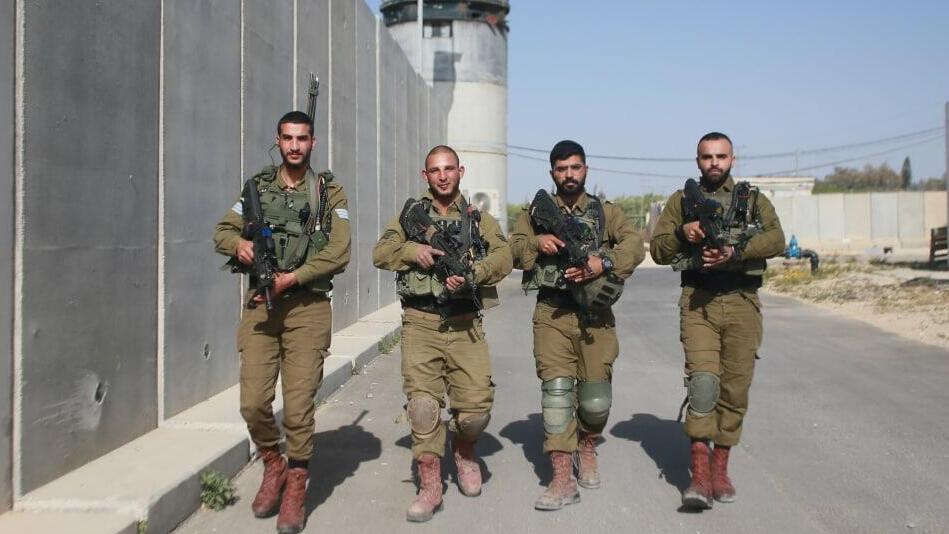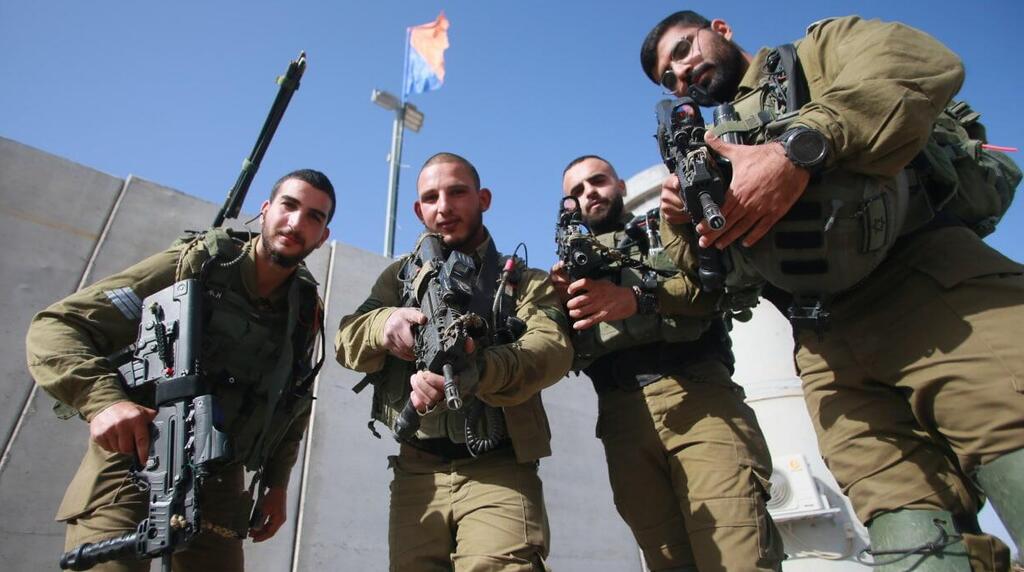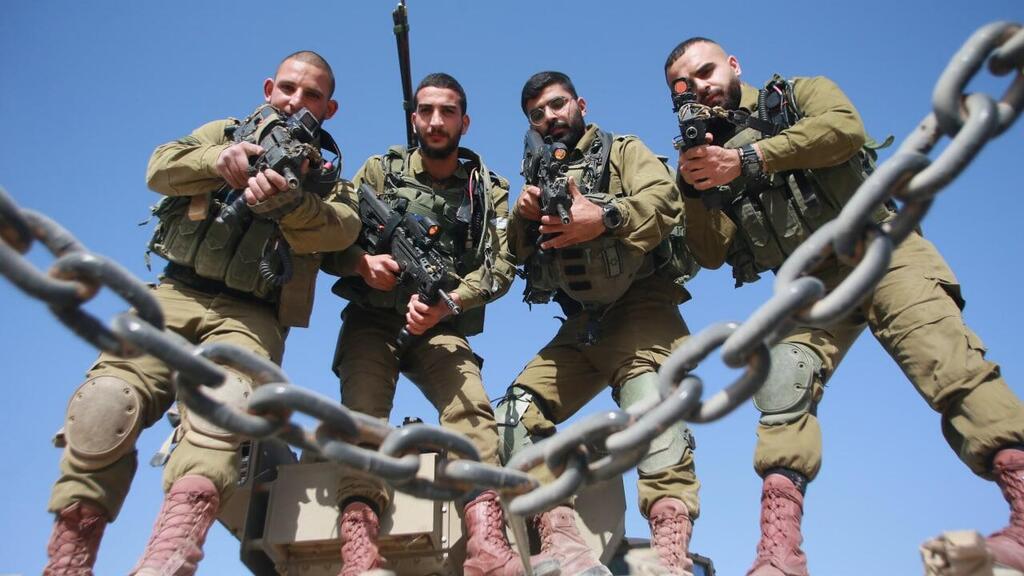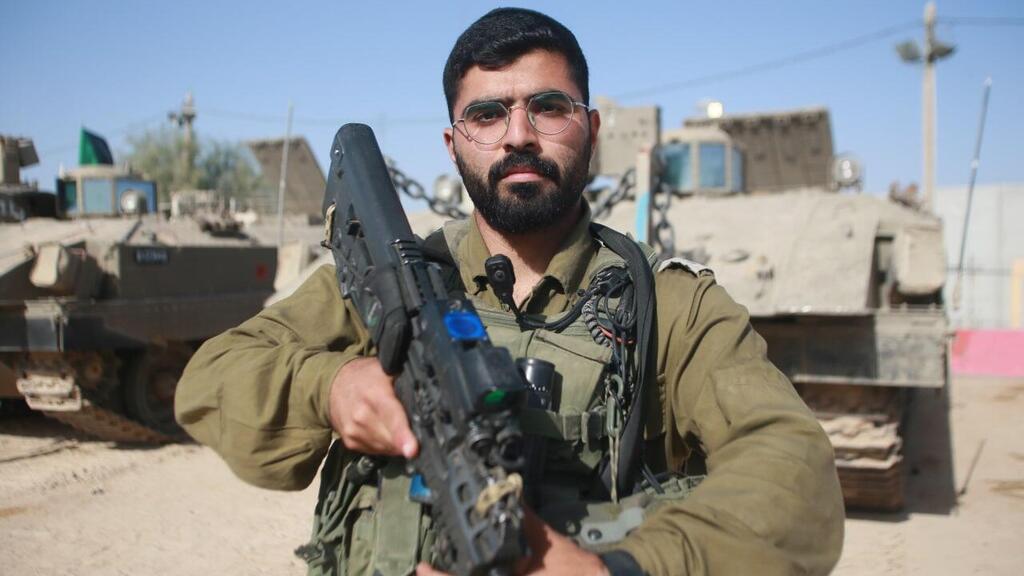Getting your Trinity Audio player ready...
On Saturday night, a little over a week ago, a powerful explosion disrupted the relative calm in Israeli communities bordering the Gaza Strip.
It was a rocket fired from the Palestinian city of Rafah in Gaza, which exploded not far from one of IDF’s southernmost outposts, where many Bedouin IDF soldiers are stationed.
For some, it was an eerie feeling of deja vu. A callback to last year’s May war in Gaza known as Operation Guardian of the Walls. For Arab and Bedouin soldiers serving in the Israeli military, the times of security tensions is also a difficult time due to reasons other than the physical fighting.
A year ago, Staff Sergeant Faras Adbia, Staff Sergeant Yaakob Alkayan, and Staff Sergeant Zein El Din Meriadat were all stationed near the Gaza border, close to Palestinian cities of Khan Yunis and Rafah, where they sat inside an armored personnel carrier for nearly ten days, waiting to ambush any encroaching enemy forces.
Eventually, it happened: Ten Hamas-affiliated terrorists emerged from one of the terror organization’s many tunnels, some 30 meters from where the three IDF soldiers were stationed.
"We heard them when they were underground, we knew they were there and that at any moment they could leap out," says Sergeant Adbia - a Christian Arab from the northern local authority of Nof-HaGalil.
Adbia, alongside Alkayan - a Bedouin from the town of Hura in the Negev - and El Din Meriadat - a Muslim Arab from the northern village of Tur’an - were all on the front line during the May war - acting as a human shield for the residents of the western Negev.
4 View gallery


The three fighters, alongside their unit commander, near the separation barrier in the West Bank
(Photo: Roee Idan)
While unflinching in their duty, the three men’s minds often wandered elsewhere: Be it to the racially motivated riots that broke out throughout many of Israel’s mixed population cities during the conflict, or to their own mixed population squad, from which two of their brothers in arms were forced to resign due to pressure and threats from home.
Despite the hardships, their unit survived the nationwide unrest last year. “While rockets were flying over our heads… I took aside one of the two who wanted to leave," recalls Adbia.
“I said to him ‘how much time do you have left [until your military service ends?] Another year or so? We are all in this together. He told me he’d stay and we went to sleep… He fled the outpost that very night to his hometown of Tamra, and did not return.
“I understood his hardships. There were also those whose mother demanded that they leave the army, but our unit worked well and did not disband, even when there was a mess in our own villages and cities,” Adbia adds.
4 View gallery


The three fighters, together with their unit commander (far right)
(Photo: Roee Idan)
The difficulty of those serving in mixed IDF units does not escape the eyes of those they are trying to protect. “The rabbis of the kibbutzim and moshavim did not stop supporting and encouraging the soldiers," says one of the officers in the unit.
While their unit survived last year’s nationwide unrest, the unit and its soldiers are now facing another existential threat due to another wave of nationalistic tensions, which started to simmer with last month’s flurry of terror attacks in which 15 Israelis were murdered.
The first attack in the deadly terror wave took place in the southern city of Be’er Sheva, and was perpetrated by an Islamic State-affiliated terrorist, who Alkayan was shocked to learn was a relative of his - albeit far-removed.
"Of course I felt ashamed. He does not represent our family, many of whom serve in the IDF,” says Alkayan.
“There are 14,000 Alkayans, do not besmirch their names because of ten people. When I saw all the reactions against the Bedouin community after the attack, I opted to ignore them and move on. If I had listened to them, I would not have continued to serve. "
The commander of the mixed unit, Lieutenant Lidor Turgeman from Beit Shemesh, is from a Jewish religious home. And while he was initially hesitant to serve in a unit composed mostly of Muslim soldiers, today he can attest that it was the right decision.
"They are part of our people, and better than many who do not serve at all. This is a country for us all,” adds Turgeman.
“Service with them is a big plus for me, getting to know their culture and learning about Arab society, and not from all the negative publications. All the preconceptions I had regarding the sector, were shattered as soon as I came here."



